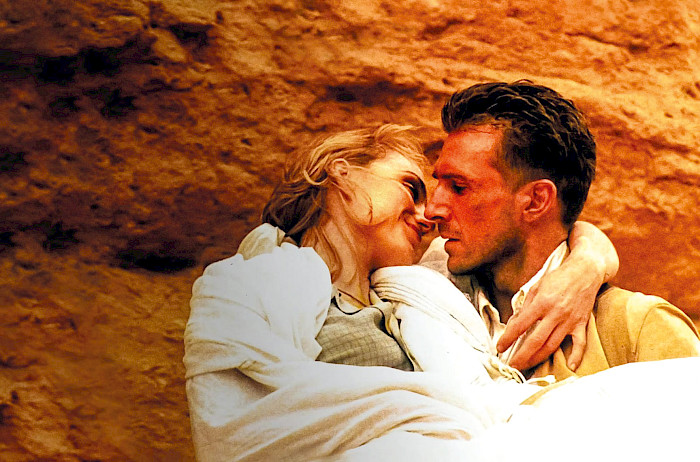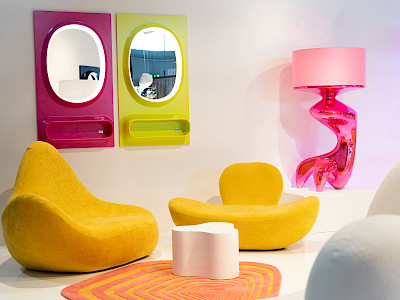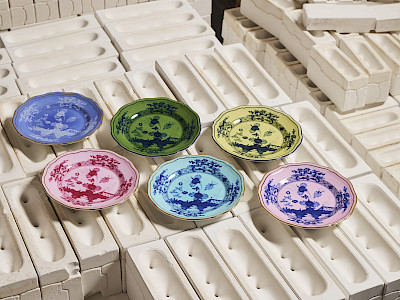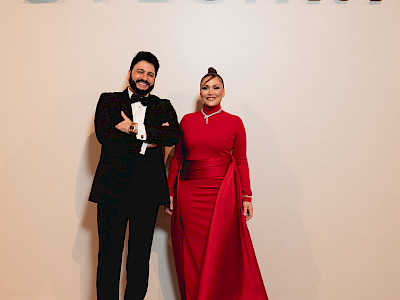
Ralph Fiennes, an icon of modern acting, transcends the big screen and theatre stages, embodying much more than just a star persona.
Born in 1961 in Ipswich, UK, into a creative family, Ralph Fiennes was immersed in artistic circles from an early age. Initially trained in visual arts, he quickly transitioned to the theatre scene, joining the esteemed Royal Shakespeare Company in the 1980s, where he found his niche. His breakthrough in film came with Steven Spielberg's "Schindler's List," portraying the brutal concentration camp commandant Amon Göth. His ability to delve into the depths of his characters shone through in "The English Patient," earning him an Oscar for his portrayal of the Hungarian Count László Almásy. Fiennes' repertoire ranges from Shakespearean classics to contemporary works. In 2011, he made his directorial debut with "Coriolanus," a modern take on the timeless play, demonstrating his versatile creativity and interest in experimentation. His recent works include starring in four films with Wes Anderson, based on the works of Roald Dahl, embodying the role of the writer himself. In 2022, an American thriller with elements of black comedy, directed by Mark Mylod, was released, in which Fiennes portrayed the role of the renowned chef, Julian Slowik.
Offstage, Fiennes is a man of great modesty and restraint, rarely revealing details of his personal life, unless it's work-related. With a plethora of awards and an impressive creative legacy, Ralph Fiennes continues to captivate audiences as a prominent figure in the world of film and theatre.
The parenthood meant unwaveringly supporting children, even when their dreams seemed unconventional
How do you decide whether a role suits you or not?
Usually, I rely on intuition. I make decisions swiftly and try not to regret them. I gravitate towards roles that interest me, regardless of their financial compensation, and frequently decline roles offering substantial rewards if they fail to capture my interest.
Have there been moments in your life when you questioned the rightness of your decisions?
For a long time, I've questioned whether I should have played Voldemort in Harry Potter. As punishment for that, I became a nightmare for every child on Earth.
You come from a talented family – your sisters work in films, one brother is an actor, and the other is a composer. How did growing up in such a creative environment influence your career path?
A central figure in our family was my mother, a writer who, prior to marrying my father at the age of 23, had already published her first works, including "One Hundred and One Dalmatians." Beyond her literary talent, she possessed a deep love for music and theatre, as well as drew beautifully. Energetic and straightforward, she had a clear vision for her life. My father often reminisced about their first meeting. Introduced by the poet Iris Birtwistle at the art gallery where my mother worked part-time, at first, she had some prejudice upon hearing of a certain Mark Twisleton-Wykeham-Fiennes, a member of the upper class, fearing he might be some sort of monstrous figure typical of that social circle. Yet, upon meeting him, she found him to be of fine physique and quite handsome. The day after they met, she boldly rode her moped to the farm where he lived. Upon arrival, he greeted her warmly and offered her tea. In response, my mother, with characteristic directness, declared, "Of course, dear. I also want six children." My mother believed that parenthood meant unwaveringly supporting children, even when their dreams seemed unconventional. However, she did have a different aspiration for me; she envisioned me becoming a musician.
Why didn't you become a musician?
It's quite a long story. Ultimately, I discovered that music wasn't my forte. Instead, I started taking painting lessons. While attending the London College of Arts for a foundation course, I was tasked with analysing Velázquez's masterpiece, "Las Meninas." The painting resonated with me, akin to my childhood toy theatre, and sparked a desire to pursue a career as an art director. However, upon delving into stage design studies, I realised it wasn't my passion either. I didn't merely want to create scenes; I wanted to be a part of them. Thus, I joined an amateur theatre group, where I found myself cast as Romeo. After this role, I secured admission to the Royal Academy of Dramatic Art.
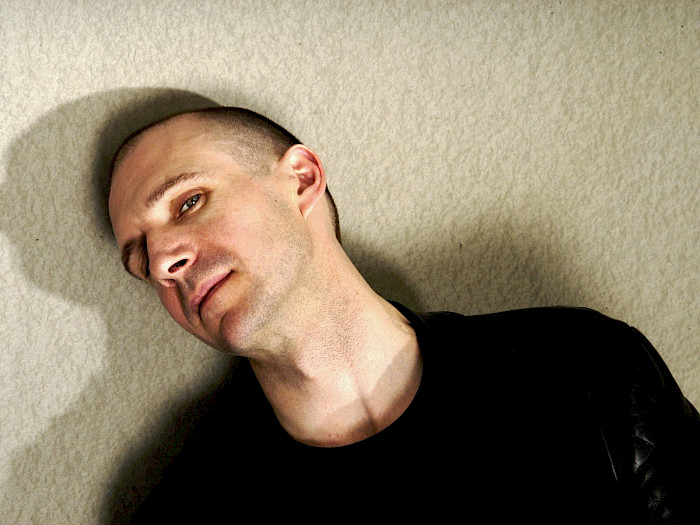
Viewers remember you for your roles in "The English Patient" and "Schindler's List." Can you share some memories from filming these movies?
I look back on those times with a great sense of nostalgia. The 1990s marked an incredibly productive period in my life. Nowadays, I believe "The English Patient" would likely be adapted into a television series. Filmmakers like Federico Fellini and Ingmar Bergman and their artistic visions would struggle to find a place in today's entertainment industry, unless they turned to making films with mobile phones. If asked today, I might have hesitated to portray SS- Hauptsturmführer Amon Göth. My mother strongly discouraged me, believing that the spirit and energy of such individuals still linger in our society. It would have been challenging for me to approach the role with that mindset. Instead, I motivated myself to portray a man who fervently believed in the righteousness of his decisions. Amidst the seriousness of the three-month filming process, there were moments of levity and joy. I recall a particular incident in Krakow when I met Ben Kingsley in the trailer. I was trying on a long leather SS coat, while Kingsley wore a brown jacket adorned with a yellow star on the sleeve. Following a scene, we had some free time and decided to stroll around the nearby square. To our surprise, we stumbled upon an old Jewish cafe. Upon noticing Ben and his star, the owner enthusiastically beckoned us in. However, mindful of our attire, I suggested we visit another time. Several weeks later, we returned to shoot in the same square, and our producers arranged to rent the same cafe. After filming, our diverse cast, consisting of actors from Israel, Germany, Ben, and myself, gathered in the cafe adorned in our costumes, making noise and laughing. It was a profoundly emotional moment for me. Films like this one teach me to appreciate life.
You've collaborated with Wes Anderson on multiple occasions, including films like "The Grand Budapest Hotel" and "The Wonderful Story of Henry Sugar." What specifically draws you to working with this director?
Wes has a wonderful and highly original imagination. I admire how he adeptly manipulates genres and themes, bringing unexpected twists to standard plots. For instance, in "The Grand Budapest Hotel," he begins the narrative with a criminal incident at a luxurious hotel, only to morph the storyline into an ironic farce. Working with Wes Anderson is consistently filled with surprises – one can never predict how it will conclude.
Many of your films deal with political themes, such as "Official Secrets." What fascinates you about working on such projects?
When discussing this particular film, I was drawn to the story of an ordinary translator who initially collaborates with the British secret service and later uncovers surveillance at the UN, along with the pressure exerted by the US and British governments on 19 nations to initiate military action in Iraq. Unlike renowned politicians like Dick Cheney or George W. Bush, who have been subjects of films, Katharine Gun was an ordinary individual, much like you and me, thrust into an extraordinary circumstance. Her mission demanded a level of courage that not everyone possesses. Do you believe many would risk their jobs and freedom for the truth? She did. Would I do the same? Honestly, I don't know. Right now, I like to think I would, but until faced with such a situation, one can never be certain. In this film, I portrayed the role of a charismatic lawyer named Ben Emerson, a great orator and intellectual drawn to challenging cases. The film had a great script, and the director insisted on accuracy, fostering genuine drama distinct from the typical Hollywood political thriller. This film evoked a profound emotional response in me. Despite being British, I frequently find myself ashamed of my government's actions.
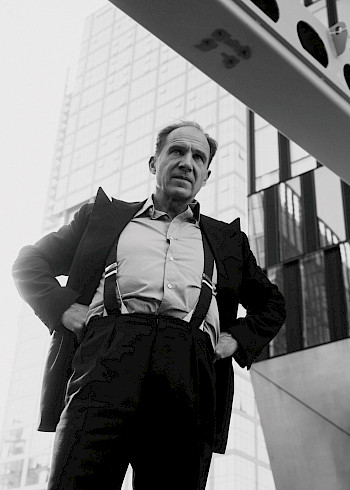
I became a nightmare for every child on Earth
Your involvement in the film "The White Crow" appears to focus on a ballet dancer, yet it also delves into political themes and the Cold War era. How did you approach this unexpected perspective?
I hold a deep admiration for Russian culture, particularly its classical literature, which has a brilliant ability to analyse the human essence. Early in my acting career, I had the opportunity to portray Eugene Onegin in my sister's film. Onegin and Tatyana's story parallels that of Romeo and Juliet. The cynicism of the main character resonated with my own attitudes during my youth. I vividly recall quoting Onegin and feeling as though his words could have been my own. During a trip to St. Petersburg, I began taking Russian language lessons. While I didn't aspire to fluency, I sought to deepen my understanding of the culture through its language. Later, I crossed paths with Vera Glagoleva, who invited me to participate in her film adaptation of Turgenev's work. Reflecting on this experience, I feel uneasy recalling the struggles my fellow actors endured due to my poor pronunciation. As for your question, with age, I've become more aware of the political undercurrents of art. I find myself pondering the responsibilities of artists in contemporary society. Thus far, I've concluded that famous artists are often extreme individualists, unable to thrive creatively within group settings. They often encounter opposition from state systems fearful of change.
I make decisions swiftly and try not to regret them
